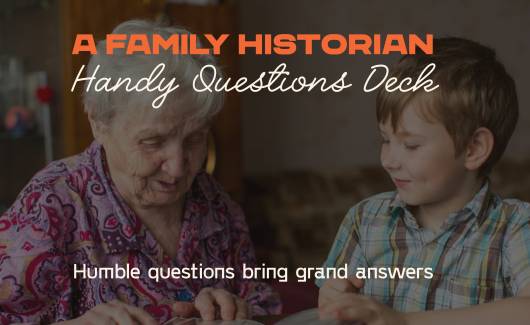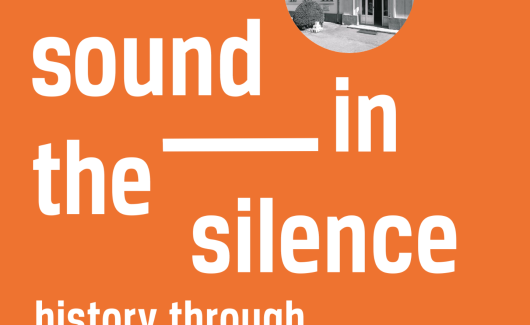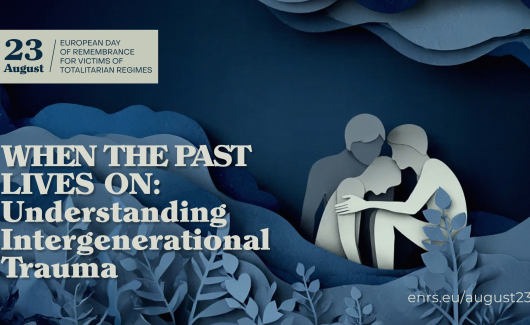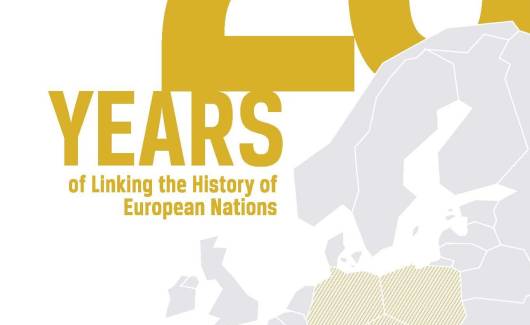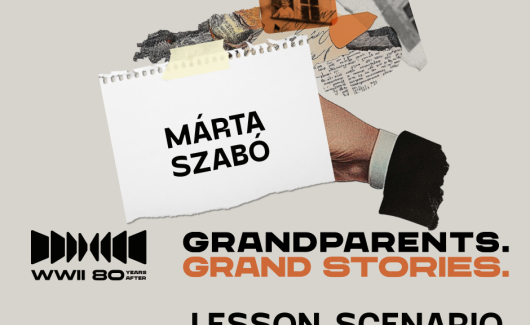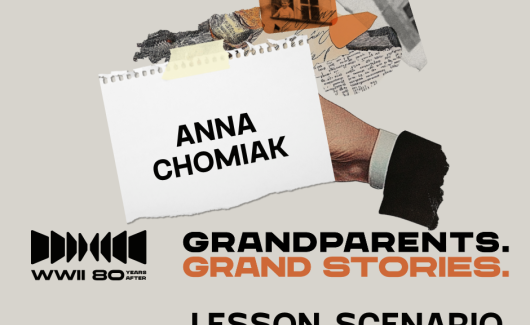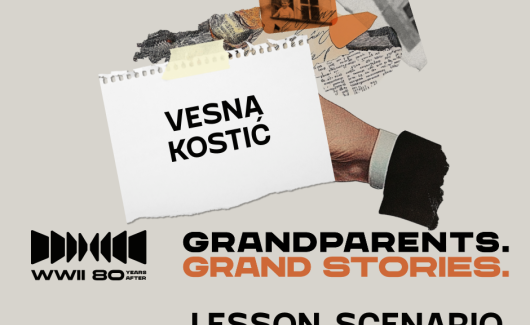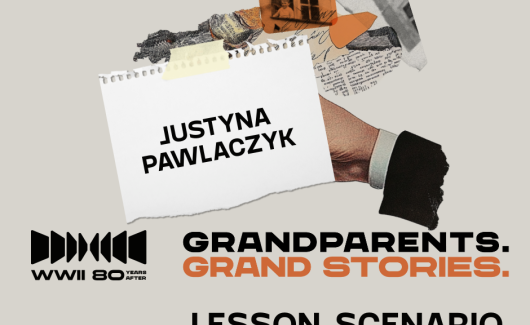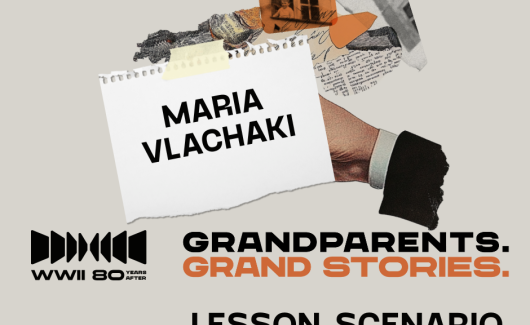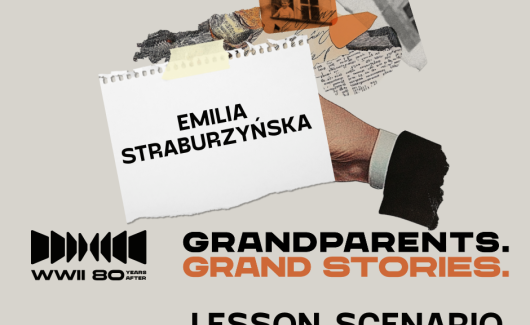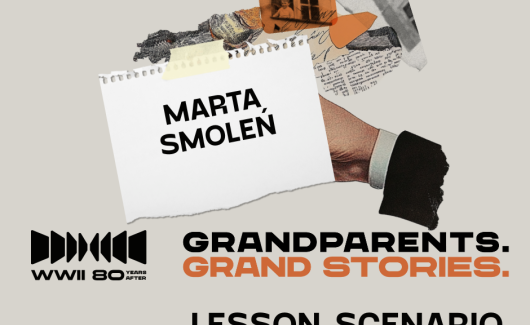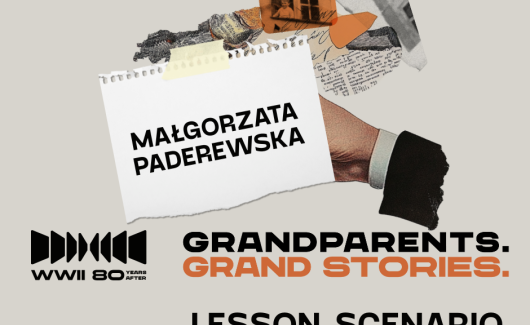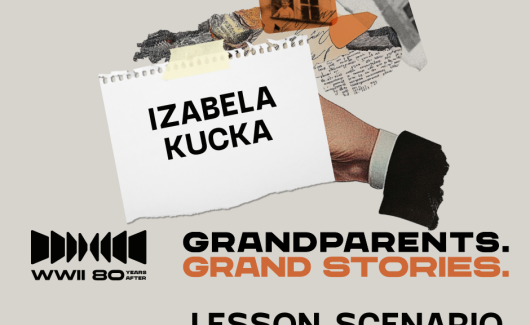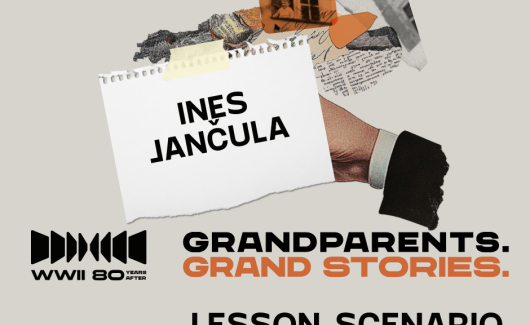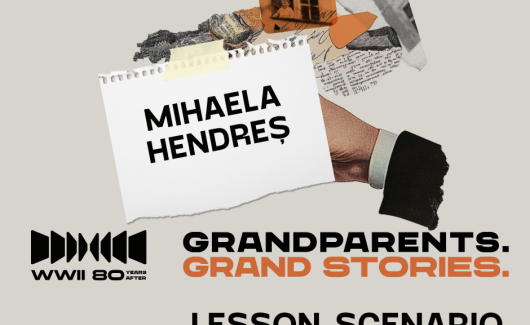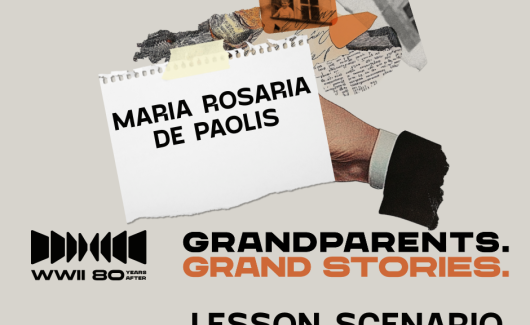Go through our publications! At ENRS, we want to create a forum for exchange of opinions between historians, social studies scholars, and representatives of other disciplines engaged in memory studies. One of the ways of achieving this goal is by publishing our own annual journal "Remembrance and Solidarity Studies", as well as supporting external publications focused on remembrance and history of the 20th century in Europe.
Sound in the Silence Pitești 2024
The publication presents the edition of the project Sound in the Silence in Pitești, Romania.
"When the past lives on: Understanding Intergenerational Trauma" brochure
20 Years of Linking the History of European Nations. The ENRS Catalogue 2024-25
My Grandmother's Rosary
Marcel Krueger
Germany
The Impact of World War II on My Family History
TEACHER: Márta Szabó
SCHOOL: Fazekas Mihály Primary and Secondary School, Budapest, Hungary
RUNNING TIME: 45-minute lesson
CLASS: A lesson for students aged 15-16
Lesson Scenario: The Green Dress
TEACHER: Anna Chomiak
Head of the Education Department at the Dulag 121 Museum
RUNNING TIME: 45-minute lesson
CLASS: Primary/Secondary School Students
MATERIALS: Text 'The Green Dress', archival photos from the Dulag 121 Museum collection,
map of Warsaw and Pruszków, excerpts from the testimony of witness Teresa Gozdyra
SUMMARY:
This 45-minute lesson plan explores World War II history through The Green Dress, a personal story of survival and resilience. Students begin by discussing meaningful objects in their own lives before being introduced to the story, which highlights the experiences of civilians during the war. The lesson includes historical context, analysis of the Warsaw Uprising and Dulag 121 transit camp, and the role of objects in preserving memory. Witness testimonies, including that of Teresa Gozdyra, emphasize the importance of firsthand accounts. Students engage in creative activities, such as social media storytelling, to deepen their connection to history. The lesson concludes with discussions on historical memory and personal reflection. An optional assignment encourages students to explore their own family histories, making the past more tangible and relevant.
Small Stories about Big Events
TEACHER: Vesna Kostić
SCHOOL: Jovan Ducic Elementary school, Belgrade, Serbia
RUNNING TIME: 45-minute lesson
CLASS: A lesson for students aged 14-15
People Who Survived the War – Stories of Survival, Loss, and Love in the Shadow of a Difficult Fate.
TEACHER: Justyna Pawlaczyk
SCHOOL: Edu Owls Polish Saturday School in Leicester, United Kingdom
RUNNING TIME: 45-minute lesson
CLASS: Lesson for students aged 10-15.
SUMMARY:
This lesson plan was created to help children and young people understand that despite different times, values such as strength, courage, perseverance, love, and coping with difficulties are timeless. Contemporary challenges, such as social pressure, emotional difficulties, or problems related to various kinds of existential crises, also require courage and resilience. Showing how people coped in extreme conditions of war, captivity, and an uncertain future can help young people better understand how to overcome problems, where to draw strength and joy from life, and how to appreciate what they have.
The stories included in this plan are true, based on the experiences and life stories of the author's family members. None of the mentioned individuals are still alive; all information comes from conversations with both the heroes themselves and their living children. The plan includes commemorative photographs from wartime and later periods.
The plan can be modified and adapted to the specific group of students.
Teaching World War History by Revealing Our School’s History
TEACHER: Maria Vlachaki
SCHOOL: History Didactics
Laboratory Teaching Personnel
Department of Primary Education
Aristotle University of Thessaloniki - Greece
RUNNING TIME: various lesson units, school project
CLASS: History lesson for students aged 11-12 years.
This teaching scenario aims to present:
1. How oral histories were used to challenge and change
stereotypes about Jewish people existing even today in
Thessaloniki, a town in northern Greece where before the
WWII and Holocaust 50.000 Jewish people lived.
2. How the school history can be used to approach the
history of World War II.
The Palmiry Massacre and the Role of Historical Witnesses
TEACHER: Emilia Straburzyńska
SCHOOL: Lieutenant Adolf “Góra-Dolina” Pilch Primary School in Dziekanów Polski, Poland
RUNNING TIME: 45-minute lesson
CLASS: History lesson for students aged 14 years and over.
Escape Room "Prisoners and Victims of the German Occupation"
TEACHER: Marta Smoleń
SCHOOL: Primary School No. 32 named after the Home Army in Toruń, Poland
RUNNING TIME: 45-minute lesson
CLASS: A lesson on the occasion of the 80th anniversary of the end of World War II for grades 4-8 of elementary school.
SUMMARY:
Summary:
The escape room lesson "Prisoners and Victims of the German Occupation" engages students in an innovative way, making history both personal and immersive. Although our school is in Skarpa, a post-war district of Toruń, history is closer than it seems. Less than a kilometer away stands one of Toruń’s few "walls of death"—the ammunition bunker—where Poles, including young boys, were executed. Nearby, a forgotten cemetery holds the remains of those who perished, their stories largely unknown to younger generations.
Through teamwork, problem-solving, and the use of Morse code, UV lights, ciphers, and QR codes, students uncover forgotten local history. They work with real testimonies, learning about relatives of their classmates who were victims of war crimes. The lesson also highlights the often-overlooked role of women in Toruń’s history, such as Helena Steinborn and Halina Urbańska, who played crucial roles in wartime resistance.
By merging traditional historical sources with modern technology, students engage in hands-on learning. They explore how local forts were used as prisons for political detainees and how murals across the city commemorate Toruń’s role in World War II. This experience fosters a deeper connection to history, proving that meaningful stories exist even in places that seem historically unremarkable.
The lesson not only broadens students' understanding of the past but also cultivates critical thinking, collaboration, and research skills. By the end of the activity, they leave with a sense of discovery, appreciation for local history, and a newfound awareness of the importance of preserving historical memory.
Story Cubes Based on Our Grandparent’s Memories
TEACHER: Małgorzata Paderewska
SCHOOL: Fryderyk Chopin Polish School at the Consulate General in Munich, headquartered in Remseck
RUNNING TIME: 45-minute lesson
CLASS: History lesson for students aged 10-11 years, Primary school
The City and the War
TEACHER: Dana Kušnírová
SCHOOL: Gymnasium Šrobárova in Košice, Slovakia
RUNNING TIME: 45-minute lesson
CLASS: Local history lesson in Kosice/Slovakia for students 16 year old and older.
Olsztyn - Local Stories from World War II
TEACHER: Izabela Kucka
SCHOOL: “Lajkonik” Polish School in Offenburg, Germany
RUNNING TIME: 45-minute lesson
CLASS: For students aged 11-16
The Fate of the Possert Family and the Volksdeutsche in Djakovo and Slavonia During and Immediately After World War II
TEACHER: Ines Jančula
SCHOOL: A. G. Matos Gymnasium in Djakovo, Croatia
RUNNING TIME: 45-minute lesson
CLASS: Interdisciplinary classes in history, culture, media education, and social sciences for students aged 14 -18.
The Second World War. The Home Front
TEACHER: Mihaela Hendreș , the Emil Racovita National College, Iasi, Romania
SCHOOL: Emil Racovita National College, Iasi, Romania
RUNNING TIME: 45-minute lesson
CLASS: History lesson for students aged 13-14 years
History and Citizenship in English Language
TEACHER: Maria Rosaria De Paolis
SCHOOL: High School — Liceo Scientifico Linguistico “Antonio Vallone,” Galatina (Lecce), Italy
RUNNING TIME: 45-minute lesson
CLASS: English language and literature for final-year students
